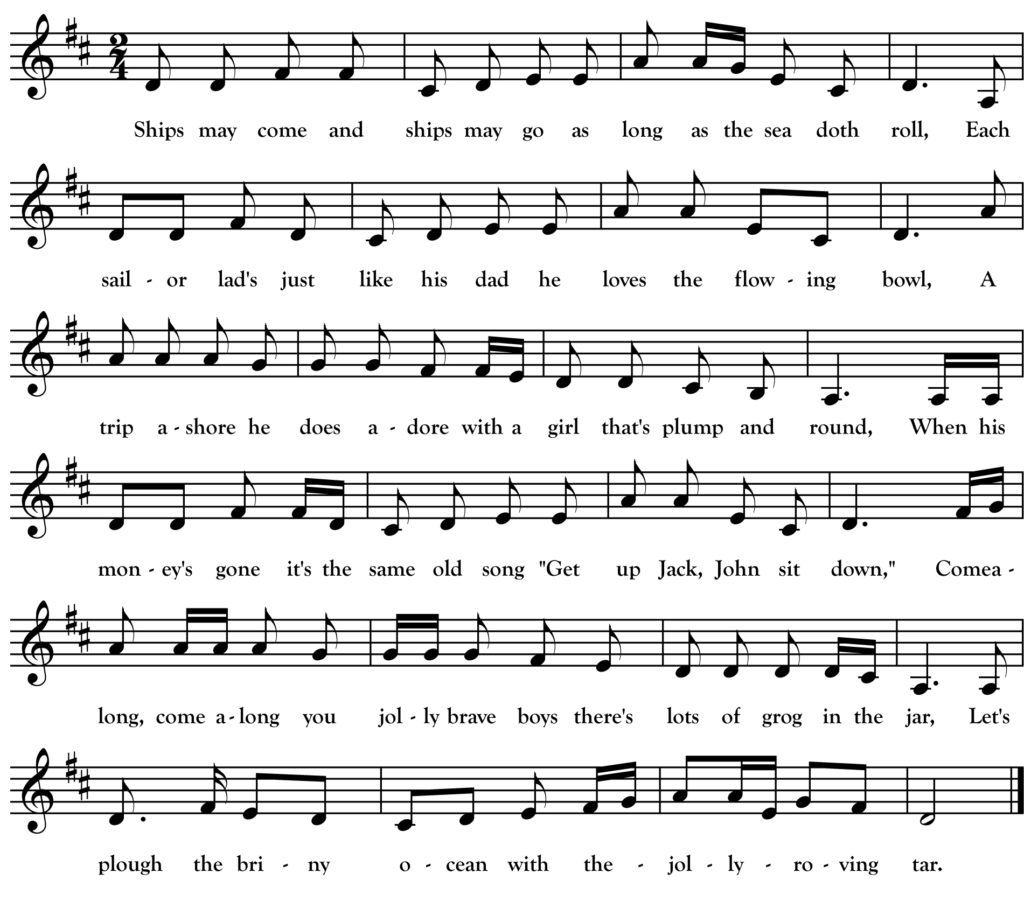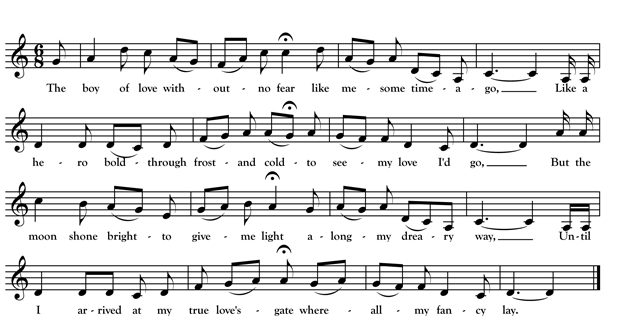The Jolly Roving Tar (Get Up Jack, John Sit Down)

Ships may come and ships may go as long as the sea doth roll,
Each sailor lad’s just like his dad he loves the flowing bowl,
A trip ashore he does adore with a girl that’s plump and round,
When his money’s gone it’s the same old song, “Get up Jack, John sit down,”
Come along, come along you jolly brave boys there’s lots of grog in the jar,
Let’s plough the briny ocean with the jolly roving tar.
When Jack gets in ’tis then he steers for some old boarding house,
He’s welcomed in with rum and gin, they feed him on port souse,
He’ll lend and spend and not offend ’til he lies drunk on the ground,
When his money’s gone it’s the same old song, “Get up Jack, John sit down,”
He then will sail aboard some ship for India or Japan,
In Asia there the ladies fair all love the sailorman,
He’ll go ashore and on a tear and buy some girl a gown,
When his money’s gone it’s the same old song, “Get up Jack, John sit down,”
When Jack gets old and weather-beat, too old to roam about,In some rum shop they’ll let him stop ’til eight bells calls him out,
He’ll raise his eyes up to the skies saying, “Boys, we’re homeward bound,”
When his money’s gone it’s the same old song, “Get up Jack, John sit down,”
We return to northern New York State this month for a song from Lena Bourne Fish (1873-1945) who sang nearly 100 songs for collectors Anne and Frank Warner in the early 1940s. Lena learned her “Jolly Roving Tar” from “an old man who used to sail on a whaling ship.” The song actually originated as part of the 1885 musical theater production Old Lavender with words by Edward Harrigan and music by Dave Braham. Harrigan and Braham were giants of American popular music in the late 1800s and many of their Irish-American themed stage songs went into oral tradition in the Great Lakes including “The Pitcher of Beer” (see Northwoods Songs #32). This “Jolly Roving Tar” (not to be confused with the more mournful song by the same name that is in tradition in Ireland and the Canadian Maritimes) is associated with Newfoundland these days thanks to a recording by the band Great Big Sea.


